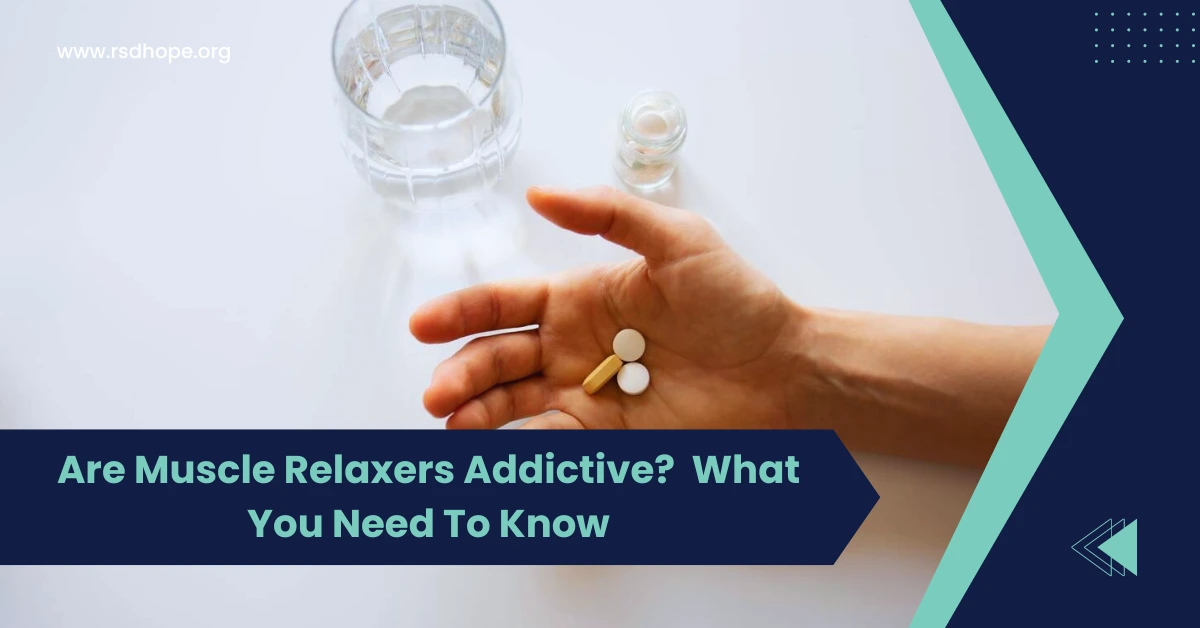Muscle relaxers are medications commonly prescribed to alleviate muscle spasms, pain, and stiffness. They work by targeting the central nervous system, helping to relax tense muscles and provide relief. While muscle relaxers can be effective in managing certain conditions, it’s crucial to be aware of their potential for addiction. In this blog post, we’ll delve into the addictive nature of muscle relaxers, warning signs to watch out for, and the importance of seeking help if you or someone you know is struggling with addiction.
Key Takeaways
- Muscle relaxers can be addictive, especially when used long-term or in high doses.
- Warning signs of muscle relaxer addiction include behavioral changes, physical symptoms, and increased tolerance.
- Treatment for muscle relaxer addiction involves professional help, support systems, and a comprehensive approach to recovery.
What Are Muscle Relaxers?
Muscle relaxers are a class of medications that work by reducing muscle spasms and alleviating pain. They can be classified into two main categories: centrally acting muscle relaxers, which target the brain and spinal cord, and peripherally acting muscle relaxers, which work directly on the muscles.
Common types of muscle relaxers include Baclofen, Carisoprodol (Soma), Cyclobenzaprine (Flexeril), and Tizanidine (Zanaflex). These medications work by either inhibiting nerve impulses or decreasing muscle contractions, ultimately promoting muscle relaxation.
While muscle relaxers can provide relief, they also come with potential side effects, such as drowsiness, dizziness, dry mouth, and blurred vision. It’s essential to use muscle relaxers only as prescribed by a healthcare professional and to be aware of their potential for addiction.
Also Read: Foods To Avoid With Trulicity: Eating Right With Diabetes Medicine
Warning Signs of Muscle Relaxers Addiction
Muscle relaxer addiction can develop gradually, often without the individual realizing it. Some warning signs that may indicate an addiction to muscle relaxers include:
- Behavioral changes: Neglecting responsibilities, isolating oneself, or engaging in secretive behavior related to muscle relaxer use.
- Physical symptoms: Experiencing withdrawal symptoms when not using muscle relaxers, such as tremors, sweating, or insomnia.
- Increased tolerance: Needing higher doses of muscle relaxers to achieve the desired effects.
- Unsuccessful attempts to quit: Struggling to stop using muscle relaxers despite negative consequences.
Risk factors for developing an addiction to muscle relaxers include a history of substance abuse, mental health disorders, and long-term use of the medication. It’s crucial to be aware of these risk factors and to seek help if you notice any warning signs of addiction.
How Long Do Muscle Relaxers Stay in Your System?
The length of time muscle relaxers stay in your system depends on various factors, including the specific medication, dosage, and individual metabolism. Each muscle relaxer has a different half-life, which refers to the time it takes for half of the drug to be eliminated from the body.
For example, the half-life of Cyclobenzaprine (Flexeril) is about 18 hours, while the half-life of Carisoprodol (Soma) is approximately 2 hours. However, the effects of these medications can last longer than their half-lives.
Factors that can affect how long muscle relaxers stay in the body include age, liver and kidney function, and the use of other medications. In general, muscle relaxers can be detected in urine tests for several days after the last dose, while hair tests can detect them for up to 90 days.
Treatment for Muscle Relaxer Addiction
If you or someone you know is struggling with muscle relaxer addiction, it’s essential to seek professional help. Treatment for muscle relaxer addiction typically involves a comprehensive approach that addresses both the physical and psychological aspects of addiction.
Treatment options may include:
- Medical detox: Safely managing withdrawal symptoms under medical supervision.
- Behavioral therapy: Addressing the underlying causes of addiction and developing coping strategies.
- Medication-assisted treatment: Using medications to help manage withdrawal symptoms and reduce cravings.
- Support groups: Connecting with others who are also in recovery and building a strong support system.
It’s important to remember that recovery from muscle relaxer addiction is possible with the right treatment and support. Seeking help is a sign of strength, and there are many resources available to assist you on your journey to recovery.
Conclusion
Muscle relaxers can be effective in managing muscle spasms and pain, but it’s crucial to be aware of their potential for addiction. By understanding the warning signs of addiction, the duration of muscle relaxers in the system, and the available treatment options, you can take steps to protect yourself and your loved ones.
If you or someone you know is struggling with muscle relaxer addiction, don’t hesitate to reach out for help. With the right support and treatment, recovery is possible, and you can reclaim your life from the grip of addiction.
Read More: Benefits Of Cloves Sexually: Unleashing The Potential
FAQs
A: While the risk of addiction is lower when using muscle relaxers as prescribed, long-term use can still lead to physical dependence and addiction.
A: If you suspect you may be addicted to muscle relaxers, reach out to a healthcare professional or addiction specialist for guidance and support.
A: Quitting muscle relaxers abruptly can lead to severe withdrawal symptoms. It’s important to work with a healthcare professional to develop a safe tapering plan.
A: Recovery from muscle relaxer addiction is a gradual process that varies for each individual. With proper treatment and support, long-term recovery is achievable.
Sources:
https://www.cancer.gov/publications/dictionaries/cancer-terms/def/muscle-relaxant

